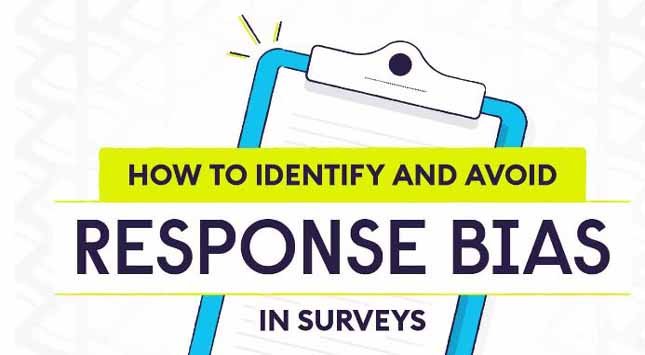The main issue PM candidates come across is being up against different types of complex questions.
This article will briefly address the categories in which these can be broken up as well as give a few examples and some tips on how to answer them.
As ever, check out MyProductMentor if you’d like to find out more info on how to prepare for product management interviews.
You May Read: Best Map API
Types of Questions
PM interview questions can be divided into the following categories:
- Product strategy questions
- Product design questions
- Data analysis questions
- Technical questions
- Behavioral questions
- Estimation questions
We will examine each of these categories next.

1. Product Strategy Questions
PMs need to come up with a vision and design a roadmap for the product – or in other words, they are responsible for product strategy. It comes as no surprise, then, that this is a big part of PM interviews.
Product Strategy questions assess whether you can deal with the numerous elements that PMs take into consideration when making important decisions about the product – such as competition, pricing, or marketing.
To answer them successfully you will need to be creative as well as employ a clearly defined structure. Here are some examples:
- How would you develop the strategy for YouTube for the next 5 years?
- How would Google enter FinTech?
- Should Google build a video streaming service to compete with Netflix, Disney+, PrimeVideo, and Hulu? If yes, outline the strategy.
- You are the marketing manager for Tinder. The user base in a particular city is not increasing at an expected rate. There has been a decline. Devise a growth strategy for Tinder there.
2. Product Design Questions
Product managers have many responsibilities and contributing to the design and features of products is one of them. Therefore the interview process will include a significant section dedicated to design questions.
Their main goal is to determine whether you are empathetic towards your customer and whether you are creative and structured in your approach.
The following are examples of questions asked in real interviews:
- Build a product to buy and sell antiques.
- How would you design a consumer application for a scooter-sharing business?
- Design a product for Facebook to fight COVID-19.
- How would you improve Facebook Groups? How would you measure whether you were successful?

3. Data Analysis Questions
Metrics is a useful tool that allows PMs to gauge how successful products are and decide what they should focus on next.
This will inevitably mean that PM interviews too will focus on this aspect, with interviewers mainly being interested in what metrics you might use in a specific situation and how you would evaluate the changes in a specific metric.
Examples of interview questions include:
- If you were the PM for the Save feature at Facebook, what metrics would you use to define the success of this feature?
- How would you measure the success of Facebook Likes?
- What metrics would you look at as a product manager for Instagram ads?
- You are the PM of the Facebook timeline. How would you measure retention?
4 Technical Questions
Some companies – Google being prominent amongst them – have a preference for technical candidates when hiring PMs.
So expect to be asked one or several technical questions in the interview. This doesn’t mean you’ll be expected to code (or answer questions about coding) but you will have to prove you understand a few technical concepts very well.
The following questions were asked at Google:
- Explain how you would design the technical aspect of location sharing in Google Maps?
- How deep is your technical expertise?
- Explain how you had a great impact on the technical direction of a certain project
5 Behavioral Questions
Most companies will ask you some behavioral questions. These are generally about why you want to work at the company, how you work with different people and how you manage conflict and what a good pm should and should not do.:
Candidates often overlook this type of question so to gain an edge over the majority you should prepare some answers in advance.
Here are some of the most commonly asked behavioral questions:
- Why do you want to work for us?
- Why do you want to be a PM?
- What are the attributes of a good PM?

6 Estimation Questions
When making important decisions PMs often have to estimate things such as market size, number of customers, and the potential for revenue. Therefore estimation questions determine if you can deal with numbers as well as whether you can subdivide problems into smaller problems.
Providing the right answer won’t be key here. Instead, you will need to make sure that you excel at making assumptions about a topic and that your simple calculations are very sharp
Examples:
- How do you decide how many registers you need to open a new Walmart?
- How would you price a new drug that eliminates the need for sleep?
- How many WhatsApp chats occur in India?
- What was Gmail’s revenue from ads in the USA last year?
Some Tips on How to Prepare
Here are a few things you should focus on, now that you know what type of questions you will be asked at Google
3. Know the Company
You will have seen that most of the examples contain references to a specific company or product.
This means that your first (and often best) line of defense is to do your due diligence on the company that you’re applying to, including becoming familiar with their products before you go to the interview
3. Refresh your Product Fundamentals
Whether you are an experienced or an aspiring PM one thing you should have down is the basic product management concepts – if you feel shaky on any aspect make sure you read up on it so that you’re sharp on interview day.
3. Have a Consistent Method
You should have a specific way of approaching each category of questions that was described above. Think of it as a sort of muscle memory – the more you practice a certain way, the more relaxed you will be in an interview setting.
Being at ease and confident will always impress your interviewers so the best way you can achieve that is plenty of practice and structure.
Takeaway
No matter what company you are applying for, there are certain categories of questions that are recurrent and there is no better way to prepare for them than practicing.
Practicing with peers can be very useful but you should really try to get access to an experienced PM who have both been through the interview process and has also conducted interviews.
MyProductMentor can help set you up with a mentor who will guide your preparation from A to Z and make sure you’re answering the right kind of questions in the right way.






